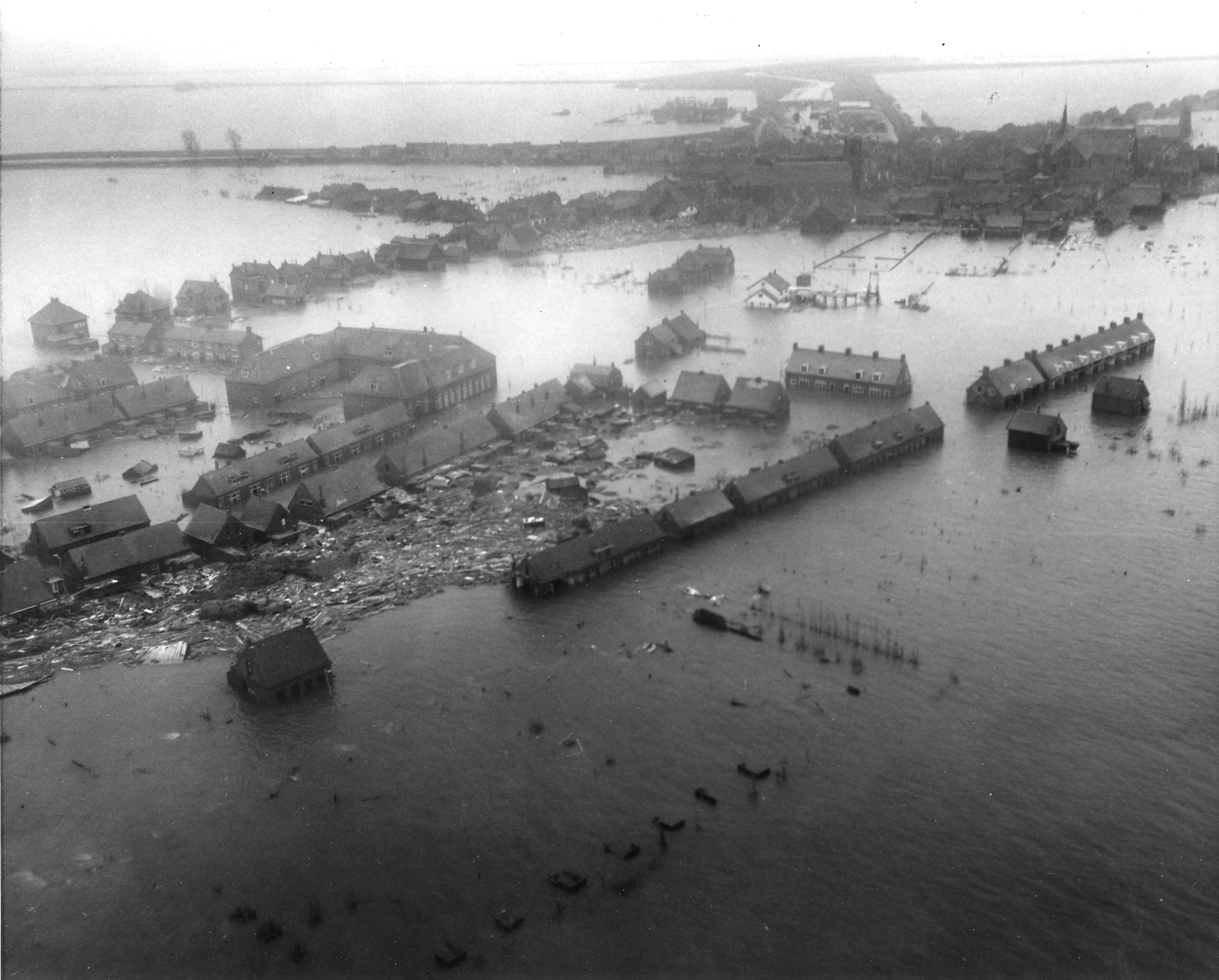Science journalist Axel Bojanowski of Spiegel comments on winter storm “Xaver” that pounded the north German coast yesterday, and on North Sea storms in general.
No frequency increase in North Sea storms in 150 years. Photo by a U.S. Army helicopter, Netherlands flood 1953. Public domain photo.
So are North Sea storms getting worse? Bojanowski (my emphasis):
Measurements of air pressure and wind since the middle of the 19th century show no increase in storms in the North Sea. The region over the last years has even been low with respect to wind. Although the year-to-year fluctuations are high, a trend in storm frequency is not detectable by scientists.”
The high frequency, Bojanowski writes, is only found in model projections. He writes:
For the future, climate models foresee a light increase in winter storms over the course of the century. The calculations, however, are in dispute.”
But don’t take the word of a Speigel science journalist. Also read what the German Weather Service says in my last post.






I hope none of your readers got too hard a time from the storm.
Pierre, I just glanced over this in Spiegel Online. As has been pointed out many times, it was never about the environment:
http://www.spiegel.de/international/world/warsaw-climate-conference-shows-capitalism-root-of-climate-failure-a-937453.html
Here in Braunschweig, 200 km south of Hamburg, nothing much has happened. Little bit windy. Temperatures a tad above zero, only some places iced over, gotta take care for surprises in traffic but that’s it.
i will never understand the skeptics..we have a huge storms without wind and the they refuse to admit climate is disrupting! shocking!
It is worse than ever, it is disruption of climate disruption!